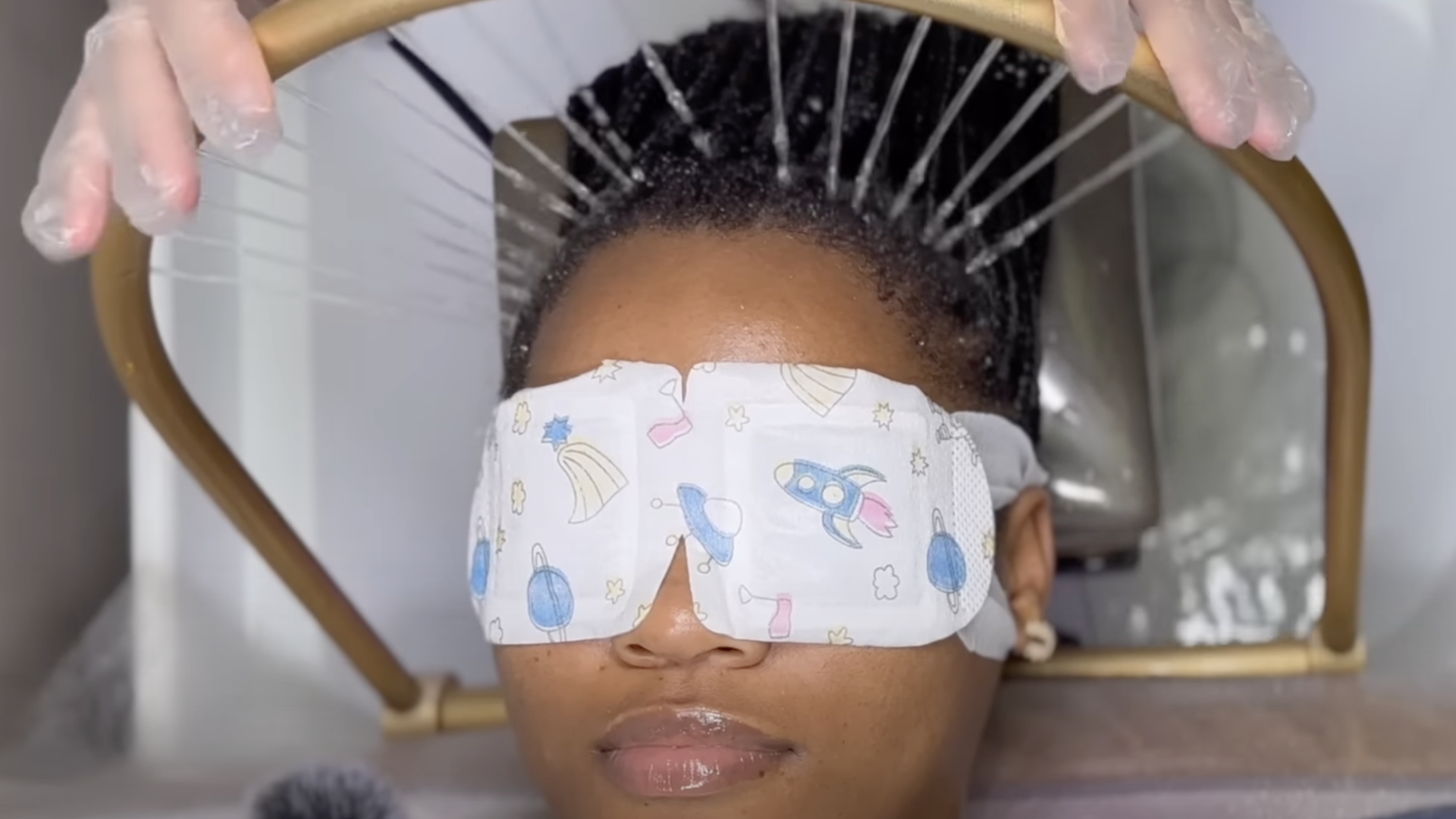
The latest viral trend on social media involves ASMR (sense-stimulating sound) videos featuring Black women indulging in rejuvenating experiences at Chinese head spas. In these videos, women with kinky, coily hair received head treatments—scalp massages, hair cleansing, vibration therapy—at local head spas in China. These traditional practices, such as the utilization of ancient Chinese rice water rings and the application of gentle forehead and temple massages, have a well-established reputation for enhancing blood circulation and promoting relaxation by alleviating stress.
Sipha Cingo, a South Africa-born content creator located in China, received a hair and scalp treatment at a head spa in Changshu. Cingo has explored a range of Chinese beauty rituals, spanning from the ear picking to facials, all captured with ASMR audio to record the intimate ambiance of her experiences. Her head spa treatment began with a head massage as she laid on a massage bed and, reminiscent of a Black hair salon, held her head in a sink.
The head practitioner used a scalp wand, a tool used to increase blood circulation and reduce stress. With a heated eye mask on, Cingo received a scalp rinse with a Chinese water ring massage. “The warmth from the eye mask and the water entering my braid rows made my brain melt,” she said of the treatment in a Youtube video. The head practitioner then massaged shampoo into her scalp and braids, cleansing her hair with ginger for anti-inflammatory benefits.
Other African content creators located in China, like Zambia-born Mwila Bwalya, received a head treatment at a head spa in Jiangsu, north of Shanghai. Despite having distinctive 4C kinky, coily hair, Mwila underwent a treatment regimen akin to that of Cingo, who had braids. She also laid on a massage bed with a rested neck and head in the sink. In the hour-long treatment, Bwalya received a head massage with multiple tools, including fingers, scalp wand, and gua sha. To enhance her experience, the practitioner introduced an extra element: a singing bowl vibration treatment to foster sound healing near her hair.
“I have always loved self-care regimens and head therapy massages are one of my favorite [treatments] to get done,” Bwalya said in her video review. In response to the head massage, she mentioned how the procedure is the best part due to the tingly, head scratching sensation. She, like Cingo, received a shampoo with ginger which extended into a neck and shoulder massage to complete the head treatment.
Black women booking head treatments in traditional Chinese spas help normalize other hair types, like braids and kinky textures, in non-Black beauty spaces. Content creator, and Nigerian-born medical student Shan Diji, in China, received treatment on her blown out hair. In Asian hair spas, practitioners typically focus solely on straight hair types, mirroring the approach of American hair schools that often exclude textured hair from their training.
As Black women living in China, or other Asian countries, an increased lack of representation may prove difficult to receive necessary hair treatments. Finding a hair salon with appropriate shampoo or hair stylists, for example, trained to care for textured hair is an issue Black women are known to face. As Black women’s visits to Chinese head spas gain traction on social media, the beauty industry has a unique opportunity to ensure that the most marginalized racial group experiences a genuine sense of care, even within the confines of Asian spa environments.